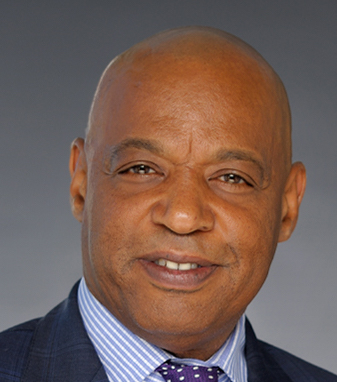By Eddie B. Allen Jr.
Contributing Writer
Kevin Cohee wants to even the odds in the Black community.
The chairman and CEO of OneUnited Bank, the largest Black-owned bank in America, recently announced an initiative designed to support financial literacy among its members and give users greater overall knowledge of how to improve their economic status.
“We live in a country that simply forgot to teach its citizens financial literacy,” Cohee said. “So it would be no different if we had forgotten to teach people reading.”
The introduction of WiseOne, an artificial intelligence-driven tool intended to support real-time financial management and enhance saving and investment skills, is OneUnited’s effort to compensate for a lack of general training, Cohee said.
WiseOne, which is available to OneUnited members, uses artificial intelligence systems that garner all of an individual’s assets, liabilities, expenses and revenues. The technology takes information related to everything from checking and savings accounts to credit scores and incorporates financial data relevant to the account-holder’s daily life, Cohee said.
For example, the technology might give alerts related to the cost of prescriptions one pays or whether life insurance is being purchased.
“So you know how revenue flows through your world,” Cohee added.
Most economic research consistently indicates that Black wealth and debt in America lags significantly behind that of white and other American cultures. Cohee says the significance of lacking financial literacy has been evident in the Black community for several generations.
“We did not teach financial literacy in our educational system, so consequently we have a lot of people in our population who are financial literacy-challenged,” Cohee said.
It’s also well-documented that among issues that give the average adult “the most problems in life” are money matters, he added.
“Those financial concerns spill into health concerns,” he said. “Because people don’t have the resources, they can’t act in preventative ways.”
“Up until now what we would do is use what I would call makeshift tactics, which includes things like, ‘Well somebody or other is having a seminar here or there,’ or ‘Somebody wrote a book’” about financial literacy, he said.
“This country’s history of systemic racism led to lack of opportunity and led to us having lower net worths. That was (further) perpetuated because we don’t have the financial literacy that we need, in order to function effectively in life.”
Rod Chavez, executive director of the National Black Bank Foundation, whose goal is to support and preserve Black-operated banks like OneUnited, calls the incorporation of WiseOne a sign of progress.
“In general, Black banks have to embrace more technology, to move forward,” Chavez said. “That’s going to be their competitive strength.”
While Chavez said he is not familiar with the specific aspects of WiseOne’s platform, he said it can be a great asset, “assuming WiseOne can deliver what it promises.”
Like OneUnited’s stated mission, National Black Bank Foundation, whose board members include Berniece King, the daughter of the Rev. Martin Luther King Jr., strives “to help eradicate the racial wealth gap,” Chavez said, adding that tools to support Black wealth are crucial.
Cohee said the potential for WiseOne’s impact extends beyond OneUnited’s vision.
“The thing I’m talking to you about has the potential to effect tens of millions of people,” he said. “It could affect the whole country.”













